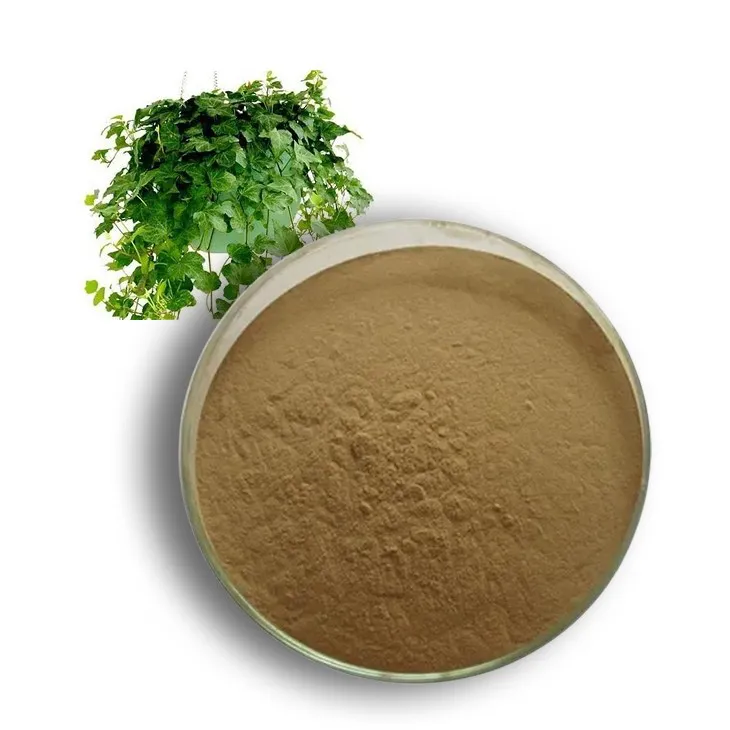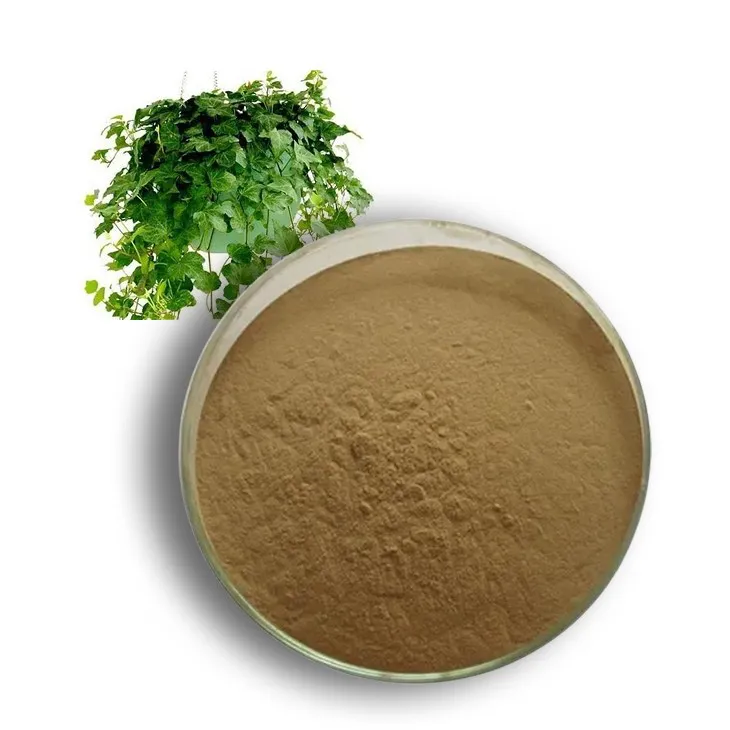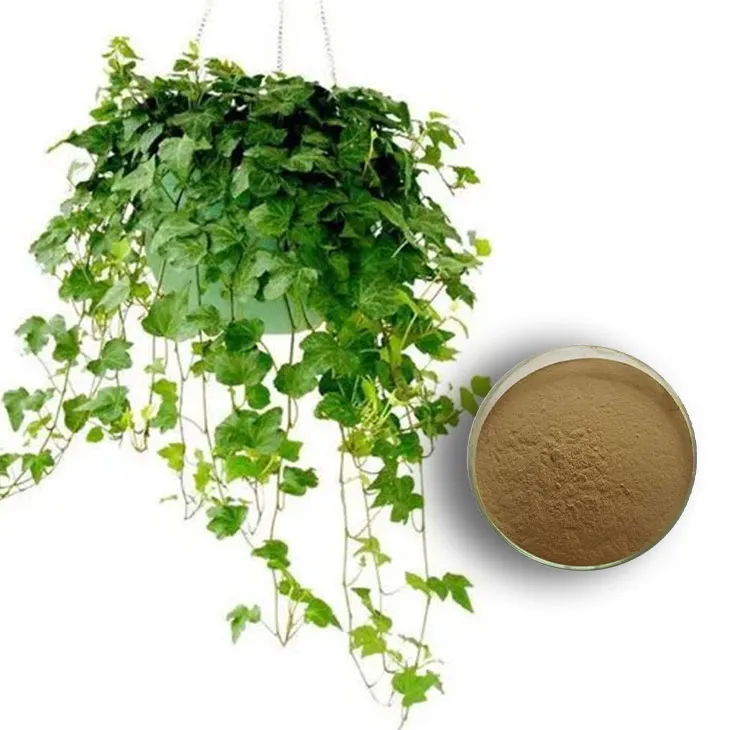- 0086-571-85302990
- sales@greenskybio.com
Ivy extract can reduce high blood pressure.
2024-11-12

1. Introduction
High blood pressure, also known as hypertension, is a global health concern. It significantly increases the risk of heart disease, stroke, and other serious health problems. In the search for effective ways to manage hypertension, natural substances like Ivy Extract are being explored. Ivy Extract has recently emerged as a potentially valuable agent in the fight against high blood pressure. This article will delve into the scientific mechanisms behind its blood - pressure - lowering effects at both the cellular and physiological levels, as well as its practical implications for patients.

2. Understanding High Blood Pressure
Definition and Diagnosis
Hypertension is defined as having a consistently elevated blood pressure reading. Blood pressure is measured in millimeters of mercury (mmHg) and is expressed as two numbers: systolic pressure (the pressure in the arteries when the heart contracts) over diastolic pressure (the pressure in the arteries when the heart is at rest). A normal blood pressure reading is typically around 120/80 mmHg. Hypertension is generally diagnosed when the systolic pressure is consistently 130 mmHg or higher, or the diastolic pressure is 80 mmHg or higher.
Causes and Risk Factors
There are multiple factors that can contribute to high blood pressure. These include lifestyle factors such as a diet high in salt, lack of physical activity, excessive alcohol consumption, and smoking. Genetic factors also play a role, as some individuals may be predisposed to developing hypertension due to their family history. Additionally, certain medical conditions like kidney disease, hormonal imbalances, and sleep apnea can increase the risk of high blood pressure.

3. Ivy Extract: An Overview
Source and Composition
Ivy extract is derived from the plant Hedera helix. The plant contains a variety of bioactive compounds, including saponins, flavonoids, and alkaloids. These compounds are thought to be responsible for the potential health benefits associated with ivy extract. For example, the saponins in ivy extract may have antioxidant and anti - inflammatory properties, which could play a role in its blood - pressure - lowering effects.
Traditional and Modern Uses
Traditionally, ivy has been used in herbal medicine for various purposes, such as treating respiratory conditions like coughs and bronchitis. In modern times, with the growing interest in natural remedies, research has shifted towards exploring its potential in managing other health conditions, including high blood pressure. The use of ivy extract in the context of hypertension is a relatively new area of study, but early findings are promising.

4. Cellular Mechanisms of Ivy Extract in Lowering Blood Pressure
Interaction with Blood Vessel Cells
Ivy extract may act on the endothelial cells that line the blood vessels. Endothelial cells play a crucial role in regulating blood pressure by producing substances such as nitric oxide. Nitric oxide is a vasodilator, which means it relaxes the smooth muscle in the blood vessel walls, causing the vessels to widen. Studies suggest that compounds in ivy extract may stimulate the production or activity of nitric oxide in endothelial cells. This, in turn, leads to a reduction in blood pressure by decreasing the resistance to blood flow in the arteries.
Effect on Smooth Muscle Cells in Blood Vessels
The smooth muscle cells in the walls of blood vessels are also a target of ivy extract. By influencing the intracellular signaling pathways in these cells, ivy extract may cause the smooth muscle to relax. For instance, it may inhibit certain enzymes or ion channels that are involved in muscle contraction. When the smooth muscle relaxes, the blood vessels dilate, and blood pressure is lowered.
5. Physiological Effects of Ivy Extract on Blood Pressure
Renin - Angiotensin - Aldosterone System (RAAS) Regulation
The RAAS is an important hormonal system involved in blood pressure regulation. Ivy extract may interfere with this system. It could potentially inhibit the production or activity of renin, an enzyme that plays a key role in the RAAS. By reducing renin activity, the cascade of events that lead to increased blood pressure, such as the production of angiotensin II and aldosterone, can be disrupted. This ultimately results in a decrease in blood pressure.
Fluid and Electrolyte Balance
Proper fluid and electrolyte balance is essential for maintaining normal blood pressure. Ivy extract may have an impact on this balance. It could affect the reabsorption of sodium and water in the kidneys. By promoting the excretion of sodium and water, the volume of blood in the circulatory system can be reduced, which in turn lowers blood pressure.
6. Evidence from Research Studies
Animal Studies
Several animal studies have been conducted to investigate the blood - pressure - lowering effects of ivy extract. In these studies, animals with experimentally induced hypertension were treated with ivy extract. The results showed that ivy extract was able to significantly reduce blood pressure in these animals. For example, in a study on rats with high - salt - induced hypertension, treatment with ivy extract led to a decrease in both systolic and diastolic blood pressure. These findings suggest that ivy extract has potential as a blood - pressure - lowering agent in vivo.
Human Studies
Although human studies on ivy extract and high blood pressure are still limited, some preliminary investigations have been carried out. In a small - scale clinical trial, participants with mild to moderate hypertension were given ivy extract supplements for a certain period. The results indicated that there was a trend towards a reduction in blood pressure in the treatment group compared to the placebo group. However, more large - scale, well - designed human studies are needed to confirm these findings and to determine the optimal dosage and treatment duration.
7. Considerations for Patients
Safety and Side Effects
While ivy extract shows promise in lowering blood pressure, it is important to consider its safety. In general, when used in appropriate doses, ivy extract is considered relatively safe. However, some individuals may experience side effects such as gastrointestinal discomfort, including nausea, vomiting, or diarrhea. Additionally, people with certain allergies, especially those who are allergic to plants in the Araliaceae family (to which ivy belongs), should avoid using ivy extract. Pregnant and breastfeeding women should also exercise caution, as the safety of ivy extract in these populations has not been fully established.
Interactions with Medications
Patients who are taking medications for high blood pressure or other medical conditions should be aware of potential interactions with ivy extract. Ivy extract may interact with some drugs, such as antihypertensive medications. It could potentially enhance or interfere with the effects of these drugs. Therefore, it is crucial for patients to consult their healthcare providers before starting ivy extract supplementation to avoid any adverse interactions.
8. Conclusion
In conclusion, ivy extract has shown potential in lowering high blood pressure through its effects at the cellular and physiological levels. While there is evidence from both animal and some human studies, more research is needed to fully understand its mechanisms of action and to confirm its efficacy and safety in humans. For patients with hypertension, ivy extract may be a natural alternative or complementary approach to managing blood pressure, but it should be used with caution, taking into account safety, side effects, and potential interactions with medications. As the search for effective and natural solutions to high blood pressure continues, ivy extract remains an interesting area of study that could potentially contribute to the overall management of this common and serious health condition.
FAQ:
Question 1: How does ivy extract work to reduce high blood pressure at the cellular level?
Ivy extract may work at the cellular level by interacting with certain receptors or ion channels. It could potentially affect the function of cells in the blood vessels, for example, by modulating the activity of endothelial cells. These cells play a crucial role in regulating blood vessel dilation and constriction. Ivy extract might influence the release of substances from endothelial cells, such as nitric oxide, which helps in relaxing blood vessels and thus reducing blood pressure.
Question 2: What are the physiological mechanisms through which ivy extract lowers high blood pressure?
Physiologically, ivy extract may act on the cardiovascular system in multiple ways. It could have a diuretic effect, increasing the excretion of water and sodium from the body. This reduces the volume of blood in the circulation, thereby decreasing blood pressure. Additionally, as mentioned before, it may cause vasodilation, which means widening of the blood vessels. When blood vessels widen, the resistance to blood flow decreases, leading to a fall in blood pressure.
Question 3: Are there any side effects associated with using ivy extract for high blood pressure?
While ivy extract is generally considered natural, it may still have some side effects. Some people may experience allergic reactions to it. In addition, it could potentially interact with other medications. For example, if a patient is already taking blood - thinning medications, ivy extract might increase the risk of bleeding. It's also important to note that long - term use and high doses of ivy extract may have unforeseen effects on the liver or kidneys, although more research is needed to fully understand these potential risks.
Question 4: How effective is ivy extract compared to traditional blood pressure medications?
At present, traditional blood pressure medications have been extensively studied and proven effective in controlling high blood pressure. Ivy extract, on the other hand, is still being investigated. While some initial studies suggest it may have blood - pressure - lowering effects, it may not be as potent as established medications. However, it could potentially be used as an adjunct therapy in combination with traditional medications. More research is required to accurately compare the effectiveness of ivy extract to that of traditional drugs.
Question 5: Can anyone with high blood pressure use ivy extract?
No, not everyone with high blood pressure can use ivy extract. Pregnant women, for example, should avoid it as its effects on fetal development are not well - known. People with pre - existing liver or kidney problems should also be cautious, as the extract may put additional strain on these organs. Moreover, those who are allergic to ivy or related plants should not use it. It's always advisable to consult a healthcare provider before starting any new treatment, including the use of ivy extract for high blood pressure.
Related literature
- The Potential of Ivy Extract in Cardiovascular Health"
- "Ivy Extract: A New Hope in Hypertension Management?"
- "Cellular and Physiological Effects of Ivy Extract on Blood Pressure"
- ▶ Hesperidin
- ▶ Citrus Bioflavonoids
- ▶ Plant Extract
- ▶ lycopene
- ▶ Diosmin
- ▶ Grape seed extract
- ▶ Sea buckthorn Juice Powder
- ▶ Fruit Juice Powder
- ▶ Hops Extract
- ▶ Artichoke Extract
- ▶ Mushroom extract
- ▶ Astaxanthin
- ▶ Green Tea Extract
- ▶ Curcumin
- ▶ Horse Chestnut Extract
- ▶ Other Product
- ▶ Boswellia Serrata Extract
- ▶ Resveratrol
- ▶ Marigold Extract
- ▶ Grape Leaf Extract
- ▶ New Product
- ▶ Aminolevulinic acid
- ▶ Cranberry Extract
- ▶ Red Yeast Rice
- ▶ Red Wine Extract
-
Soy Extract
2024-11-12
-
Withania Somnifera Extract
2024-11-12
-
Andrographis Paniculata Extract Powder
2024-11-12
-
Citrus Aurantii Extract
2024-11-12
-
Pine bark Extract Powder
2024-11-12
-
Golden Seal Extract
2024-11-12
-
Beetroot Powder
2024-11-12
-
Fenugreek Extract Powder
2024-11-12
-
Maitake Mushroom Extract
2024-11-12
-
Mulberry Extract
2024-11-12





















